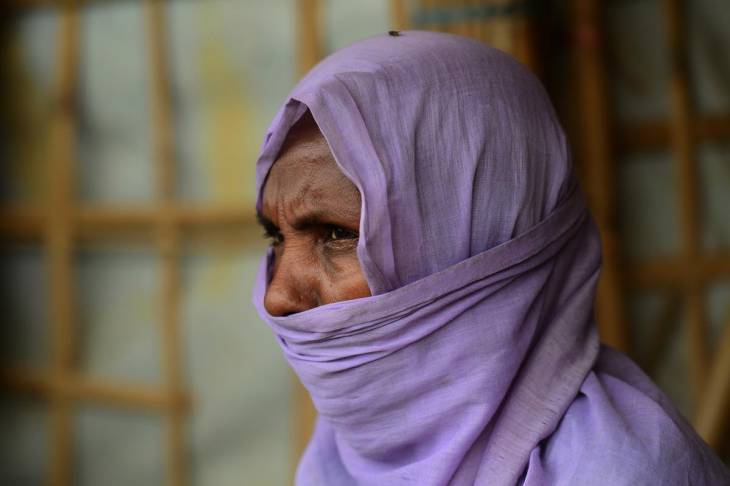by Wayne Jordash*
Wayne Jordash is one of the most experienced lawyers before international criminal tribunals. He is back from the Rohingya refugee camps in Bangladesh where he met some of the victims he represents in a potential case before the International Criminal Court (ICC). In a vibrant plea, he explains why the ICC Prosecutor was right to seek a ruling allowing her to act and how the judges’ decision advances the Rohingya’s search for justice.

A member of Shanti Mohila (“Women of Peace”), a group of Rohingya refugee women who have officially asked the ICC to investigate crimes against the Muslim minority in Myanmar. ©Munir UZ ZAMAN / AFP
Sitting in Cox’s Bazar, the world’s largest refugee settlement, on 15 October 2018 with two colleagues listening to a group of animated Rohingya women relate their experiences and their hopes for the International Criminal Court (ICC), turned out to be an abject lesson in humility. The women were survivors from a group of 400 known as the Shanti Mohila (Peace Women) that my organisation, Global Rights Compliance, in partnership with Legal Action Worldwide, represent, including for the purposes of the preliminary examination now winding its tortuous way through the corridors of the ICC. The women and girls have suffered terrible sexual and gender-based violence and a wide range of other persecutory type crimes that forced approximately 700,000 of their number into Bangladesh in August 2017, to join another 300,000 that were forced out during previous waves of decade-long, state-sponsored violence.
It was also a stark reminder that pain and anguish are much closer when representing victims, than when defending accused or otherwise working at a distance from the human detail of international crimes. Despite being involved in many international and national judicial processes in a variety of conflicts over the last 20 years, these crimes seem particularly grim to me, especially considering the pitiful chances for any meaningful relief for the Rohingya. There is no room to believe that Myanmar’s military will release its grip of the Rohingya or any realistic hope that their hate, channelled with such destructive intent, might dissipate or diminish anytime soon. Continue reading
